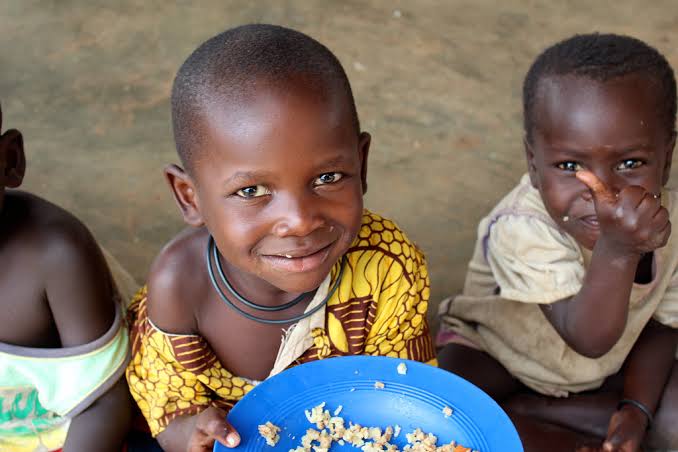Action Needed to Prevent Severe Malnutrition Crisis in Drought-Affected Zambia
The prolonged drought has particularly impacted children in the Western, Southern, Central, and North-Western provinces, with many families already facing hunger and unable to provide nutritious food.

Nearly 52,000 children under the age of five in Zambia's 84 drought-affected districts are at risk of severe wasting, the most life-threatening form of malnutrition, in the next year if immediate preventive measures are not implemented. An additional 276,000 children under five could suffer from moderate wasting. This alarming data comes from a recent SMART survey commissioned by the National Food and Nutrition Commission with support from UNICEF.
The prolonged drought has particularly impacted children in the Western, Southern, Central, and North-Western provinces, with many families already facing hunger and unable to provide nutritious food.
Critical Findings from the SMART Survey
"We are at a critical juncture," said Dr. Muntanga Mapani, Executive Director of the National Food and Nutrition Commission. “The findings highlight the immediate need for preventive measures to avoid a severe malnutrition crisis.”
Key findings include:
Over 50% of households in five out of six surveyed provinces are experiencing moderate to severe hunger.
Western Province is the hardest hit, with over 88% of households facing hunger, and nearly half experiencing severe hunger, putting children at high risk of malnutrition and illness.
24% of children under five in Zambia are experiencing severe child food poverty, meaning they consume only two or fewer food groups per day, which significantly increases their risk of wasting.
Impact of Malnutrition
"Children suffering from malnutrition are 10 times more likely to die than well-nourished children," said Naysan Sahba, UNICEF Director of Global Communication and Advocacy. "We must urgently expand access to nutritious and diverse food, health services, and water, hygiene, and sanitation services to avert a looming crisis."
The survey, conducted in six out of ten provinces during the May 2024 harvest season, found overall wasting rates below 5%, but the rate in Southern Province has risen to 6.2%, more than double the rate during the 2019/2020 drought. Wasting rates are expected to increase during the 2024/2025 lean season when food access will become even more restricted.
Risks to Pregnant and Breastfeeding Women
The survey also revealed that almost 112,000 pregnant and breastfeeding women are at risk of wasting, with nearly 13,000 expected to suffer from severe wasting. Low breastfeeding rates, especially in urban parts of Lusaka, are another concern.
Water, Sanitation, and Health Risks
Significant gaps in basic water, hygiene, and sanitation facilities further increase health risks for malnourished children and mothers. Over 60% of people in Central and Western provinces and 25% of urban Lusaka households lack reliable access to safe water. Poor sanitation and scarce handwashing facilities exacerbate these issues, with widespread diarrhoea affecting up to 33% of children in some areas.
Urgent Actions Needed
To prevent a nutrition crisis, UNICEF and its partners urge immediate action:
- Prioritize Mothers and Children: Ensure food distribution and cash assistance programs for pregnant and breastfeeding women and children under five, providing calorie and protein-rich food.
- Combat Nutrient Deficiencies: Provide nutrient-rich supplements to pregnant and breastfeeding women and young children, and intervene early to prevent moderate wasting from progressing to severe wasting.
- Expand Healthcare Access: Increase treatment capacity at all primary healthcare facilities to address the anticipated rise in malnutrition cases during the lean season.
- Improve WASH Services: Ensure households and healthcare facilities have access to sustainable and climate-resilient clean water, sanitation, and handwashing services.
By taking these steps, we can mitigate the impact of the drought and protect the health and future of Zambia's youngest and most vulnerable populations.
- READ MORE ON:
- Zambia
- Drought
- Malnutrition
- UNICEF
ALSO READ
Transforming Zambia's Energy Future: Embracing Biogas Technology
IMF Increases Support for Zambia Amid Severe Drought
ENGIE Energy Access Begins Construction of 15 Solar Mini-Grids in Zambia
World Bank Approves $208M Grant to Combat Zambia's Drought Disaster
Tanzania to Feed Zambia: 650,000 Tonnes of Maize Deal Sealed










